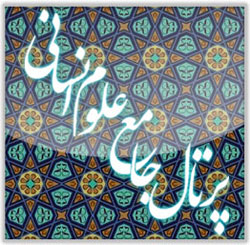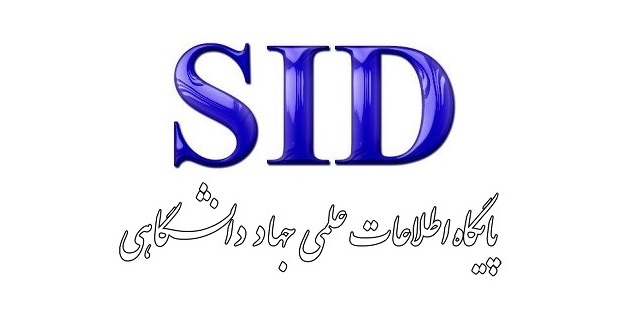تحلیل ادراک شهروندان از عرصههای عمومی در فرآیند بازآفرینی بافتهای تاریخی (مطالعه موردی: محله دکان شمس در شهر شوشتر)
کلمات کلیدی:
بازآفرینی شهری, ادراک شهروندان, بافت تاریخی, دکان شمس, شوشترچکیده
تحولات معاصر در حوزه بازآفرینی شهری، نشاندهنده تغییر رویکرد از مداخلات صرفاً کالبدی به نگرشهای جامعنگر و انسانمحور است. در این میان، درک و خوانش ادراکی شهروندان از فضاهای عمومی، نقش کلیدی در موفقیت طرحهای بازآفرینی ایفا میکند. مقاله حاضر با تمرکز بر محله تاریخی دکان شمس در شهر شوشتر، به تحلیل کیفی ادراک شهروندان از عرصههای عمومی پرداخته و با بهرهگیری از روش SWOT و رویکرد تحلیل تفسیری، به بررسی پیوند میان کیفیت فضایی، هویت تاریخی و مشارکت اجتماعی در فرآیند بازآفرینی میپردازد. یافتهها حاکی از آن است که علیرغم وجود ساختار فضایی منسجم، پتانسیلهای تاریخی و سرزندگی عملکردی، محله دکان شمس با چالشهایی نظیر فرسودگی کالبدی، اغتشاش بصری، کمبود فضاهای عمومی با کیفیت و تهدید هویت معماری مواجه است. ادراک منفی شهروندان از این فضاها، منجر به کاهش حس تعلق و مشارکت شده است. در مقابل، ذهنیت مثبت نسبت به بناهای تاریخی، تجربه زیسته در فضاهای جمعی و تمایل ساکنان به احیای محله، نشاندهنده ظرفیت بالای بازآفرینی مشارکتی است. این مقاله پیشنهاد میکند که با بهرهگیری از اصول طراحی زمینهگرا، ارتقای کیفی فضاهای عمومی، ساماندهی ورودیها و مسیرهای پیاده، و تقویت رویکردهای مشارکتی، میتوان تصویر ذهنی مثبت ساکنان را احیا و فرآیند بازآفرینی را در مسیری پایدار هدایت کرد.
دانلودها
مراجع
1. Tilaki MJM, Farhad S. A qualitative investigation of revitalisation efforts to foster residents' attachment in dilapidated neighbourhoods: Is identity a matter? Journal of Urban Management. 2024;13(4):639-56.
2. Nazari S, Saqafi Asl A, Abdollahzadeh Taraf A. Exploring the Principles of Sustainable Revitalization in Enhancing the Quality of Urban Spaces: Case Study: Historical Fabric of Tabriz. Sustainable City Journal. 2022;5(1):117-32.
3. Carmona M. Public Places, Urban Spaces: The Dimensions of Urban Design: Routledge; 2021. 690 p.
4. Strandberg C, Ek Styvén M. The multidimensionality of place identity: A systematic concept analysis and framework of place-related identity elements. Journal of Environmental Psychology. 2024;95.
5. Qi J, Mazumdar S, Vasconcelos AC. Understanding the relationship between urban public space and social cohesion: A systematic review. International Journal of Community Well-Being. 2024;7(2):155-212.
6. Vardopoulos I, Tsilika E, Sarantakou E, Zorpas AA, Salvati L, Tsartas P. An integrated SWOT-PESTLE-AHP model assessing sustainability in adaptive reuse projects. Applied Sciences. 2021;11(15):7134.
7. Boussaa D, Madandola M. Cultural heritage tourism and urban regeneration: The case of Fez Medina in Morocco. Frontiers of Architectural Research. 2024;13(6):1228-48.
8. Zhu J. Public space and its publicness in people-oriented urban regeneration: A case study of Shanghai. Journal of Urban Affairs. 2023:1-20.
9. Ramos A. Sustainability assessment in waste management: An exploratory study of the social perspective in waste-to-energy cases. Journal of Cleaner Production. 2024;143693.
10. Khanlari R, Mohammad Ali Lavasani Z. Investigating the Impacts of Urban Space Vibrancy on the Formation of Citizens' Mental Image Using Urban Photography Techniques (Hasan Abad Square, Tehran). Quarterly Journal of Urbanism and Architectural Identity. 2019;1(1):79-91.
11. Shams F, Shoaleh M, Lotfi S, Soltani A. Revisiting Influential Components on the Perception of Active Facades in Street Landscape Design (Case Study: Middle Fabric of Shiraz, Khaayam Street). Iranian Architecture and Urbanism. 2019;10(2):159-78.
12. Lak A, Hakimian P. Collective memory and urban regeneration in urban spaces: Reproducing memories in Baharestan Square, city of Tehran, Iran. City, Culture and Society. 2019;18:100290.
13. Hadad Adel F, Mohammadi Moradi A, Ali Al-Hesabi M. Foundations of Islamic Thought in Participatory Place-Making for Revitalizing Historical Fabric: Case Study: Oodjalan Neighborhood. Quarterly Journal of Islamic Architectural Research. 2023;11(3):63-87.
14. Bahadari B, Rajaei SA, Hatami Nejad H. Analysis of Urban Revitalization of Dilapidated Areas with a Focus on Spatial Justice (Case Study: Ne'mat Abad Neighborhood, District 19, Tehran). Geography (Iranian Geography Association Journal). 2022;20(74):21-49.
15. Bakhshi A, Rasouli SH, Eskandari R. Spatial Analysis of Factors Influencing the Revitalization of Dilapidated Areas in Qaemshahr City (with a Focus on Evaluating Government Support Policies). Urban Environment Planning and Development. 2021:29-40.
16. Fashi H, Parizadi T, Davoodi A. Physical-Social Pathology of the Historical Fabric of Shushtar. Spatial Planning. 2023;13(1):41-64.
17. Hajian Zeidy M, Sufinejad A. Sustainable Architecture Indicators in Iranian Buildings: Academic Center for Education, Culture and Research (Jahade Daneshgahi); 2023. 167 p.
18. Khaksar A, Mahdavi E. Revitalization of Historical Fabrics with a Focus on Increasing Urban Livability. Art and Civilization of the East. 2023;11(42):54-63.
19. Heydari Soreshjani R, Vafaee A, Dolatyaran K. Measuring and Evaluating Cultural-Social Revitalization Projects of Public Spaces with a Focus on Improving Environmental Quality and Neighborhood Identity: Case Study: Historical Walkways of Kashan. Geographical Researches on Urban Planning. 2022;10(3):143-70.
20. Zaheri M, Saremi HR, Hajian Zeidy M. Measuring the Impact of Technology Components on Islamic-Iranian Culture to Build New Sustainable Urban Settlements in Dorud. Geography (Regional Planning). 2022;13(1):359-73.
21. Zarghani M, Bakhshi A, Hajian Zeidy M, Rasouli SH. Relationship Between Geographical-Environmental Factors and Job Stress of Employees of Large Construction Projects (Case Study: Iranmal Tehran). Geography (Regional Planning). 2022;12(4):617-35.
22. Bahriyeh P, Toofan S, Akbari Namdar S. Revisiting the Evolution of Architecture in the Structure of Tabriz Bazaar with Emphasis on Contextualism. Quarterly Journal of Iranian Islamic City Studies. 2021;11(39):5-16.
23. Aldossary MJ, Alqahtany AM, Alshammari MS. Cultural Heritage as a Catalyst for Sustainable Urban Regeneration: The Case of Tarout Island, Saudi Arabia. Sustainability. 2025;17(10):4431.
24. Sulayman M, Ivashko Y, Afshariazad S, Dmytrenko A, Paprzyca K, Safronova A, et al. Specific issues of conservation and restoration of Libya mosques (7th century-1815). International Journal of Conservation Science. 2024;15(2):861-78.
25. Zaina SM, Fadli F, Hosseini SM. Evaluation of smart irrigation systems in hot-arid climates for green roofs and walls: case of Doha, Qatar. Smart and Sustainable Built Environment. 2022;11(2):346-67.
26. Moghimy L, Hanachi P, Fadaei Nejad Bahramjardi S. Examining the Changes in the Spatial Structure of Tehran and the Impact of Development-Oriented Pedestrian Plans on It Using Space Syntax Techniques: Case Study: 17 Shahrivar Development-Oriented Plan. Architecture and Urbanism of Arman Shahr. 2024;17(48):115-32.
27. Aslanoğlu R, Kazak JK, Szewrański S, Świąder M, Arciniegas G, Chrobak G, et al. Ten questions concerning the role of urban greenery in shaping the future of urban areas. Building and Environment. 2025;267:112154.
28. Talaei M, Sangin H. Thermal comfort, daylight, and energy performance of envelope-integrated algae-based bioshading and static shading systems through multi-objective optimization. Journal of Building Engineering. 2024;90:109435.
29. Hajian Zeidy M, Rouhi M, Razavi Amrei SG. Effect of Passive Solar Cooling Systems Performance on Indoor Air Quality in Buildings. Development Engineering Conferences Center Articles Database. 2024;1(1).
دانلود
چاپ شده
ارسال
بازنگری
پذیرش
شماره
نوع مقاله
مجوز
حق نشر 2025 Shirin Sheykhi, Naser Sarafraz, Amir Kaki (Author)

این پروژه تحت مجوز بین المللی Creative Commons Attribution-NonCommercial 4.0 می باشد.









